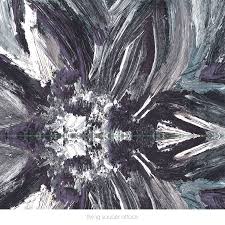For over a decade, there have been few reported sightings of Flying Saucer Attack. A delicious run of albums in the 90s gave way to near-total silence at the turn of the new millennium, almost as if planned. Over time, the Bristolian experimentalists have been whittled down to a one-man band, consisting of core member David Pearce. You could call them space-, post-, avant-, or whichever prefix you might apply to ‘rock’ in order to emphasise the decentralisation of ego and retrospection in the context of otherwise traditional rock instrumentation. Whatever you call it, the urge to transcend is clear.
Incorporating disparate folk and electronic influences, previous efforts saw Pearce revelling in the puerile joy of burying acoustic tracks in noise – sometimes white and mechanical, sometimes tailored to sound a little like the eponymous flying saucer. Today, Pearce’s vocal presence and melodic talent take a backseat, giving way to pure ambience. In light of the freeform discord of Flying Saucer Attack’s live recordings (see 1996’s In Search Of Spaces and 2003’s P.A. Blues), as well as a few reverential pieces named in tribute to Popol Vuh, the new album’s material is not unprecedented, but it is daringly funereal and earnest. A few whispers of flying saucer remain, but they are mostly subdued in the mix – less campy space-exploitation, more of an atmospheric tool.
At just under an hour in length, with individual tracks ranging from 1 to 9 minutes, Instrumentals 2015 is more singular than plural. The structure is tight and cohesive, with only a small blip in the form of ‘Instrumental 6’, a gratuitous noise interlude that seems to serve no real purpose (except perhaps as a ‘page break’ of sorts). Beginning (and ending) on a sombre note, a solitary chiming guitar is gradually joined by layers of a similar substance. Each coherent tone ripples hopelessly outward, giving the impression of total isolation. A little warmth seeps in around ‘Instrumental 10’ – improvisational threads fuse tentatively into motives, and the mood briefly picks up, recalling some of the pastoral sweetness of their earlier albums. ‘Instrumental 11’ is particularly strong – a deeply resonant, almost ecclesiastical track that happily fills the desolate space opened up by the first half of the record. This is followed by a swift comedown – the final few tracks re-establish the status quo, ending with a few minutes of mournful reverberations.
Throughout the record, and in true post-rock fashion, Pearce takes his guitar and wrings out of it a thousand textures and frequencies. In fact, the guitar is responsible for everything you will hear, from the aerated drones of ‘Instrumental 4’ to the cello-like rumbles of ‘Instrumental 7’. His strict minimalism and lo-fi inclinations (all recordings were made at home on tape and CD-R) never pose any kind of creative threat. On the other hand, Pearce luxuriates in consistency, building and sustaining a sonic landscape that rarely wavers in its mission, even as its delivery chops and changes.
All in all, Instrumentals 2015 is an admirable piece of work from a man who seems to take direction from few others – a notable exception being Florian Fricke, whose name is dutifully mentioned in the sleevenotes, 21 years after the first two Popol Vuh tributes. Miserable as it may be, Pearce’s internal world provides a strange kind of solace – from populism and modernity, of course, but also from the need to be present at all.
<div class="fb-comments" data-href="http://thequietus.com/articles/18318-flying-saucer-attack-instrumentals-2015-review” data-width="550">


